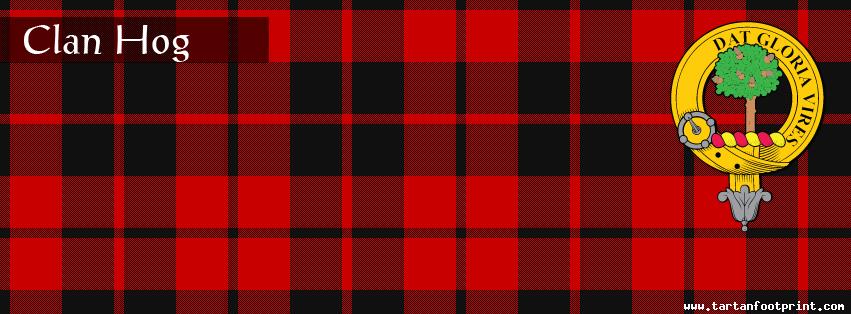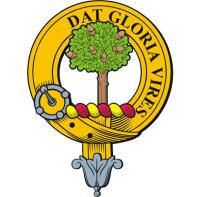
Clan Hog
Also spelled Hogg and Hogge, it is generally agreed that this surname derives from the name of the animal although the word 'hoga' means 'careful' or 'prudent'. Philip le Hog appears in the English 'Hundred Rolls' in 1274, and Alan le Hogge in a Lancashire Inquisition in 1323.
Thurcyl hoga is one of the witnesses to a charter of Cnut in 1024. Henry Hogg og Roxburghshire and John Hog, burgess of Edinburgh, signed the Ragman Roll in 1296 pledging his alegiance to Edward I of England, along with a number of other Scottish nobles. There are records of a family of this name in Edinburgh in the 14th century. Roger Hog was one of the most influential burgesses of the city (1358-63), and Simon Hog is recorded as a burgess in 1402. Berwick Castle was taken from the English in 1379 by Hog, Lydzetwod and companions. The most well known of this name is James Hogg (known as the 'Ettrick Shephard'), author of 'The Private Memoirs and Confessions of a Justified Sinner'.
In 1935, Colonel Stewart Hog of Newliston, a lawyer and member of the Scottish Bar, was appointed Vice-Lord Lieutenant of West Lothian. Hog's son fought in both the First and the Second World War, and was awarded the Military Cross for his service.
Newliston House belonging to the Newliston Hogs still remains near Kirkliston, near Edinburgh.




